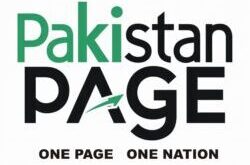Pakistan calls UN Pact for Future ‘deficient’ on addressing int’l disputes, including in Mideast, S. Asia
UNITED NATIONS: A senior Pakistani diplomat told the UN General Assembly on Tuesday that the decisions of Pact for the Future, which world leaders adopted last month, were “severely deficient” on peace and security in addressing disputes and conflicts, such as those in the Middle East and South Asia, as he underscored the need for their resolution.
“The failure to address the key ongoing disputes and conflicts, such as the ongoing genocidal war in Gaza and the wider conflict in the Middle East, conflicts in Europe, Africa or South Asia – none of these have been effectively addressed by the Pact,” Ambassador Munir Akram said in a debate during which delegates expressed their views, hopes, disappointments and reservations on the Pact and its two annexes, the Global Digital Compact and the Declaration for Future Generations, which were approved at the Summit of the Future on Sept. 22.
The Pakistan envoy said the pact also does not address the breakdown of arms control measures or the renewed, multi-dimensional global arms race.
“The UN’s relevant institutions – the Security Council, the Conference on Disarmament, the Disarmament Commission, and particularly this General Assembly – must address these realities which we face and which we must not dodge,” he stressed.
Ambassador Akram also called for redress of historical injustices against Africa and other developing countries, saying the UN’s security architecture should not be blamed for this failure to promote peace or resolve conflicts.
“This failure is due to the strategic ambitions and policies of some major and some minor powers,” he said.
“Efforts to achieve UN Security Council reform should not become a part of this strategic competition between rival powers, by seeking privileged positions for strategic allies on the Council, while ignoring the aspirations and positions of the vast majority of the General Assembly, which consists of small and medium states,” Ambassador Akram said in an obvious reference to some major countries backing a few countries’ candidature for permanent membership in an expanded Council, which now has 15 members.
“Such an approach would not strengthen the world order, it would erode it And Security Council reform should be accompanied by a revival of the General Assembly,”
As for the developing countries, the Pakistani envoy emphasized that the achievement of the Sustainable Development Goals (SDGs) should not be linked to any other actions in the Pact.
“We look forward to the fulfillment of the commitments on development finance and reform of the international financial architecture, sovereign debt architecture review, trade and tax reform.”
At the outset of his speech, Ambassador Akram spoke on behalf of a 16-member like-minded Group on issues arising from the Pact, which is aimed at strengthening the UN so that it delivers a better future for people.
Besides Pakistan, the other members of the Group are Algeria, Bolivia, China, Cuba, Egypt, Eritrea, Iran, Iraq, Libya, Nicaragua, Russia, Sri Lanka, Syria, Venezuela, and Zimbabwe.
Ambassador Akram, speaking for the Like-Minded Group, regretted that the Pact did not mention sovereign equality, non-interference in internal affairs, and the right to self-determination of people, as well as colonization and foreign occupation as reflected in previously agreed UN initiatives and documents.
The Group also regretted that paragraph 18 diminishes the understanding of the additional nature of climate finance as specified in the Paris Agreement on climate change.
On Peace and Security, the Group said the Pact falls short in addressing the real threats and challenges, including their root causes, such as violations of the purposes and principles of the UN Charter, international law, geopolitical polarization and tensions, festering conflicts, and unresolved disputes.
On the critical issue of debt, the Group underscored the need for an urgent, comprehensive, inclusive, and transparent multilateral solution to resolve the ongoing debt crisis of a large number of developing countries.
“The UN must play a central role in this process,” the Group said, noting that the Pact does not guarantee this role.

